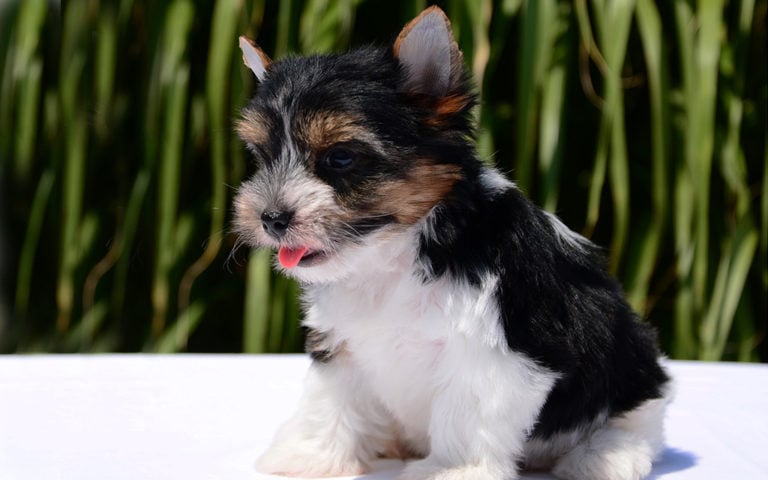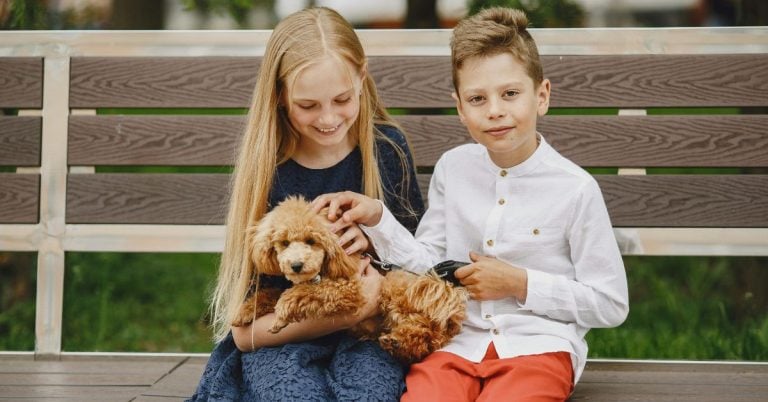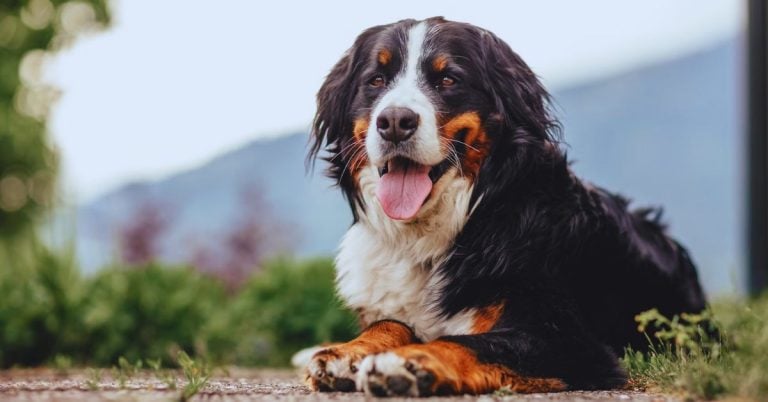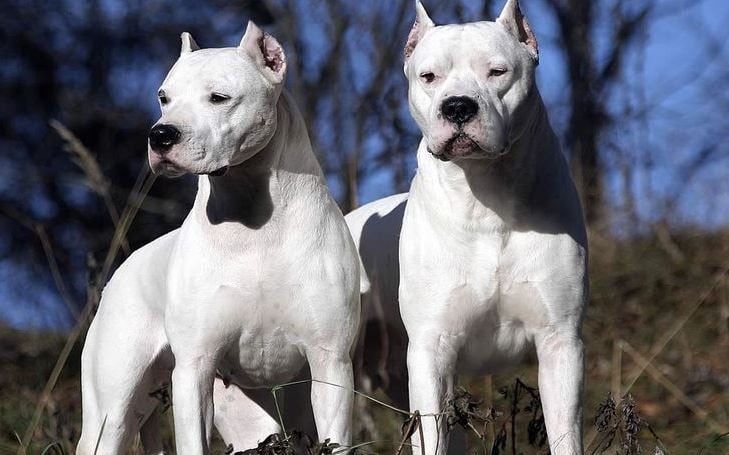Experts Say These 15 Dog Breeds Are Born to Be Emotional Support Animals
Dogs have an incredible ability to sense our emotions and provide comfort when we need it most. Whether it’s a gentle nudge of the nose, a warm cuddle, or simply their loyal presence, dogs have a way of soothing stress and lifting spirits in a way few humans can.
For individuals living with anxiety, depression, PTSD, or chronic stress, emotional support animals (ESAs) can be life-changing companions. They offer stability, affection, and a sense of purpose—no judgment, just love.
While technically any dog with the right temperament and training can become an emotional support animal, some breeds are particularly well-known for their empathy, intuition, and devotion.
These dogs seem to have a sixth sense for human emotions, often providing comfort before we even realize we need it. Whether it’s a large, gentle breed that offers a calming presence or a smaller dog that’s content to snuggle in your lap, the right companion can make all the difference.
If you’re considering adding an emotional support dog to your life—or are simply curious about which breeds are best at providing this special kind of care—this list highlights 15 of the most popular and beloved breeds for emotional and therapeutic support. From Golden Retrievers to Yorkies, each of these pups brings something special to the table.
1. Labrador Retriever: The Intuitive Companion
Labradors possess an almost supernatural ability to read human emotions. Their friendly disposition and eagerness to please make them naturals at providing comfort during difficult times.
These intelligent dogs quickly learn to recognize anxiety signals and will often respond by leaning against their owners or placing their head on a lap without being prompted. Labs are also sturdy enough to provide physical support if needed.
Their patient temperament means they handle stress well, remaining calm even when their human companions are experiencing emotional turbulence. This steadiness, combined with their legendary loyalty, creates a dependable emotional anchor for people struggling with mental health challenges.
2. Golden Retriever: The Sunshine Therapist
Known for their perpetual smile and wagging tail, Golden Retrievers radiate joy that’s genuinely contagious. These natural-born therapists seem to understand human emotions on a profound level, often responding to tears with gentle nuzzles.
Golden Retrievers thrive on human connection and remain steady during emotional storms. Their patience is legendary – they’ll sit quietly for hours if that’s what their person needs, never rushing or demanding attention.
Remarkably adaptable, these dogs adjust their energy levels to match their environment, becoming playful when spirits need lifting or serene when calm is required. This emotional intelligence makes them exceptional at supporting people through anxiety, depression, and PTSD.
3. Poodle: The Brainy Mood-Lifter
Poodles combine remarkable intelligence with an uncanny sensitivity to human emotions. Available in three sizes – standard, miniature, and toy – they adapt to various living situations while providing the same emotional benefits.
Their hypoallergenic coat makes them accessible to people with allergies who might otherwise miss out on canine companionship. Poodles form deep bonds with their humans and seem to intuitively understand when something’s wrong.
Beyond their emotional intelligence, these dogs bring playfulness and humor to daily life. Their silly antics and clever problem-solving abilities often provide welcome distractions from anxiety or depression.
Poodles excel at reading subtle emotional cues and responding appropriately, whether with quiet presence or gentle interaction.
4. Cavalier King Charles Spaniel: The Velvet Shadow
Cavaliers have been bred for centuries specifically to be companion animals, and it shows in their gentle, affectionate nature. These dogs seem happiest when snuggled against their human, making them perfect for providing physical comfort during anxiety attacks.
Their moderate size allows them to be portable emotional support without being too small and fragile. Cavaliers adapt beautifully to any lifestyle – they’re equally content with apartment living or country homes, making them versatile supporters. What truly sets them apart is their intuitive understanding of human emotions.
A Cavalier will often sense distress before it’s openly expressed, quietly appearing at their person’s side when needed most. Their soulful eyes seem to convey genuine empathy that many owners find profoundly comforting.
5. Pomeranian: The Pocket-Sized Protector
Don’t let their tiny stature fool you – Pomeranians pack enormous emotional support capabilities into their fluffy little bodies. These spirited companions offer a unique combination of alertness and affection that many find grounding during anxiety episodes.
Poms are especially beneficial for those who find tactile stimulation calming, as their plush double coat provides a soothing sensory experience. Their portable size makes them ideal for those who need constant emotional support in various settings, from home to travel.
Perhaps most endearing is their unwavering confidence, which often inspires the same in their human companions. A Pomeranian’s bold approach to life can be contagious, gently encouraging people with anxiety or depression to face challenges with similar courage. Their expressive faces and animated personalities bring joy to even the darkest days.
6. Havanese: The Velcro Comforter
Havanese dogs earned their nickname “velcro dogs” honestly – they stick to their humans like glue, providing constant emotional reassurance. This Cuban breed thrives on human connection and seems genuinely happiest when helping their person feel better.
Their playful nature brings lightness to heavy emotional moments without being overwhelming. Havanese adapt their energy levels remarkably well, becoming calm when their human needs peace or playful when distraction would help more. What makes them exceptional emotional supporters is their profound sensitivity to human moods.
A Havanese will often respond to sadness by gently placing a paw on their person or offering a toy as comfort. Their non-shedding coat makes them accessible to many people with allergies, opening emotional support possibilities to those who might otherwise miss out.
7. German Shepherd: The Steadfast Guardian
German Shepherds offer a unique form of emotional support through their unwavering loyalty and protective nature. For people whose anxiety stems from feeling unsafe, these dogs provide both physical and psychological security that can be transformative.
Their exceptional intelligence allows them to learn and respond to specific emotional support tasks with remarkable precision. German Shepherds can be trained to recognize panic attacks, apply gentle pressure therapy, or guide their person to a quiet space during overwhelming moments.
Beyond their working abilities, these dogs form profound bonds with their humans. A German Shepherd’s attentive gaze communicates a depth of understanding that many owners describe as almost human-like. Their consistent, predictable nature provides a stabilizing influence for people struggling with emotional regulation or PTSD.
8. Border Collie: The Empathetic Genius
Border Collies possess an extraordinary emotional radar that seems almost supernatural. Their intense observation skills – developed for herding – translate into an uncanny ability to detect subtle changes in their human’s emotional state.
These brilliant dogs excel at learning specific responses to anxiety attacks, depression episodes, or other emotional needs. A Border Collie can be trained to retrieve medication, apply deep pressure therapy, or create a protective barrier around their person in crowded spaces.
What truly distinguishes them is their problem-solving approach to emotional support. When standard comfort techniques aren’t working, a Border Collie will often innovate new ways to help, whether through gentle distraction or finding another household member.
Their active minds and bodies also encourage their humans to engage with the world, gently countering isolation tendencies common with depression.
9. Great Dane: The Gentle Giant
Few things compare to the comforting presence of a Great Dane leaning against you during an anxiety attack. Despite their imposing size, these dogs are famously gentle souls who seem to understand their own strength and move with surprising delicacy around their humans.
Great Danes excel at providing deep pressure therapy naturally – their substantial weight creates a grounding effect that many people with anxiety or autism find immediately calming. Their quiet, low-energy nature makes them surprisingly suitable for apartment living despite their size.
Perhaps most endearing is their subtle emotional intelligence. A Great Dane won’t overwhelm with exuberant affection but instead offers a steady, calm presence during emotional storms.
Their natural dignity and quiet confidence often inspire the same qualities in their human companions, making them exceptional emotional anchors.
10. Yorkshire Terrier: The Mighty Miniature
Yorkshire Terriers may be small in stature, but their capacity for emotional connection is enormous. These pocket-sized companions combine portability with surprising emotional depth, making them ideal supporters for people who need constant companionship.
Yorkies form intensely loyal bonds with their humans and seem genuinely distressed when their person is upset. Many owners report their Yorkshire Terrier intuitively climbing onto their chest during anxiety attacks, providing comforting pressure and distraction.
Their alert nature makes them excellent at redirecting attention during anxious rumination or depressive episodes. A Yorkie’s persistent playfulness or gentle pawing can break negative thought spirals effectively. Their size makes them perfect for travel, ensuring emotional support remains consistent even away from home – a crucial factor for many people managing anxiety or depression.
11. Bichon Frise: The Cotton-Ball Therapist
With their cloud-like appearance and sunny disposition, Bichon Frises bring an immediate mood lift to any room they enter. Their natural cheerfulness acts as a gentle counterbalance for people struggling with depression or persistent low mood. Bichons possess a remarkable emotional sensitivity beneath their playful exterior.
These dogs often respond to tears by gently climbing into laps and remaining still until the emotional storm passes. Their hypoallergenic coat opens the door to animal-assisted emotional support for many people with allergies.
What makes Bichons especially valuable is their adaptability to different living situations and lifestyles. They thrive in apartments or houses, with active owners or more sedentary ones, making them accessible emotional supporters for diverse needs.
Their natural sociability extends to children and other pets, creating a harmonious environment that reduces overall stress levels.
12. French Bulldog: The Clownish Comforter
French Bulldogs combine emotional intuition with a natural talent for comedy that proves therapeutic for many people with depression or anxiety. Their expressive faces and playful antics provide natural pattern interruptions during negative thought cycles.
Despite their playful side, Frenchies also excel at quiet companionship. They often seem to understand when energy is needed versus when calm presence is more helpful. Their moderate exercise needs make them accessible emotional supporters for people with physical limitations or chronic fatigue.
French Bulldogs form deep bonds with their humans and display remarkable empathy during emotional difficulties. Many owners report their Frenchie will gently place their sturdy little body against them during panic attacks without training.
Their portable size combined with their substantial feel provides comforting weight without overwhelming even smaller individuals.
13. Corgi: The Low-Rider Mood Elevator
Corgis bring a unique combination of alertness and affection to their emotional support role. Their fox-like expressions seem to communicate genuine understanding during difficult emotional moments, creating a sense of being truly seen.
Originally bred as herding dogs, Corgis have a natural protective instinct that extends to their human’s emotional well-being. They often position themselves strategically near their person during anxiety episodes, creating a sense of security and grounding.
Their distinctive body shape – long and low – makes them perfect lap warmers without the overwhelming weight of larger breeds. Corgi owners frequently report the therapeutic effect of their dog’s warm body against their legs during anxiety attacks.
Beyond physical comfort, their playful antics and “smiling” expressions bring levity to heavy emotional moments, gently encouraging their humans back toward joy.
14. Shih Tzu: The Ancient Comforter
Bred specifically to be companions to Chinese royalty, Shih Tzus have thousands of years of emotional support in their genetic heritage. Their sole purpose throughout history has been human companionship, resulting in an almost supernatural ability to attune to human emotions.
Shih Tzus excel at providing consistent, gentle affection without being demanding. They seem to understand when quiet presence is needed versus playful distraction. Their size makes them perfect lap dogs, offering physical comfort during anxiety episodes.
Many owners report their Shih Tzu will place their head directly over the human heart during moments of distress, as if listening to and calming the heartbeat.
Their expressive eyes communicate such depth of understanding that many people with depression or anxiety report feeling truly “seen” by their Shih Tzu companion. This connection creates a powerful anchor during emotional storms.
15. Boxer: The Playful Protector
Boxers bring a unique balance of playfulness and protection to their emotional support role. Their natural exuberance provides effective distraction during anxious moments, while their watchful nature creates a sense of security for people whose anxiety stems from feeling unsafe.
Despite their muscular appearance, Boxers are remarkably gentle with their humans. They seem to modulate their strength intuitively, providing firm pressure during anxiety attacks without overwhelming.
Their expressive faces – with those soulful eyes and wrinkled foreheads – communicate genuine concern during their person’s difficult moments. What truly distinguishes Boxers is their emotional resilience.
They maintain their cheerful outlook even in challenging situations, modeling a kind of emotional stability that can be therapeutic for humans struggling with mood regulation. Their playful “dancing” and paw movements often bring smiles during the darkest emotional times.





















